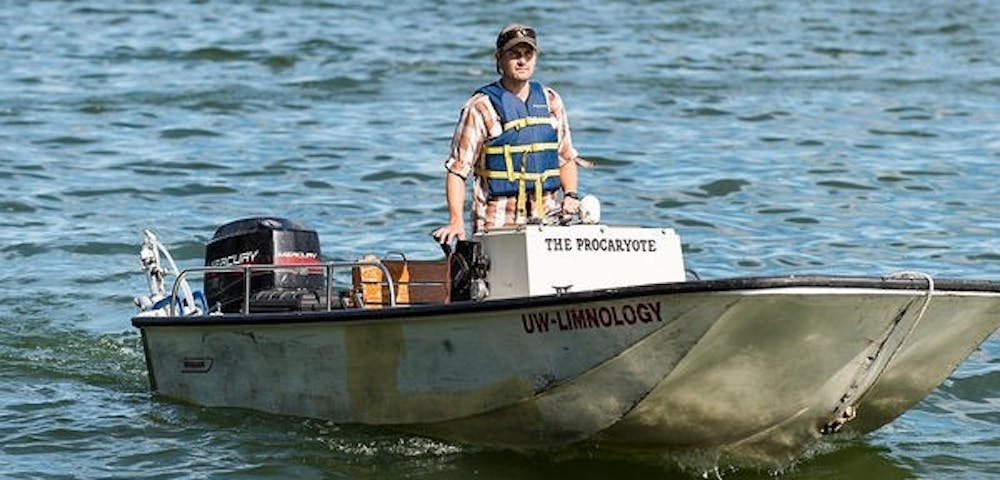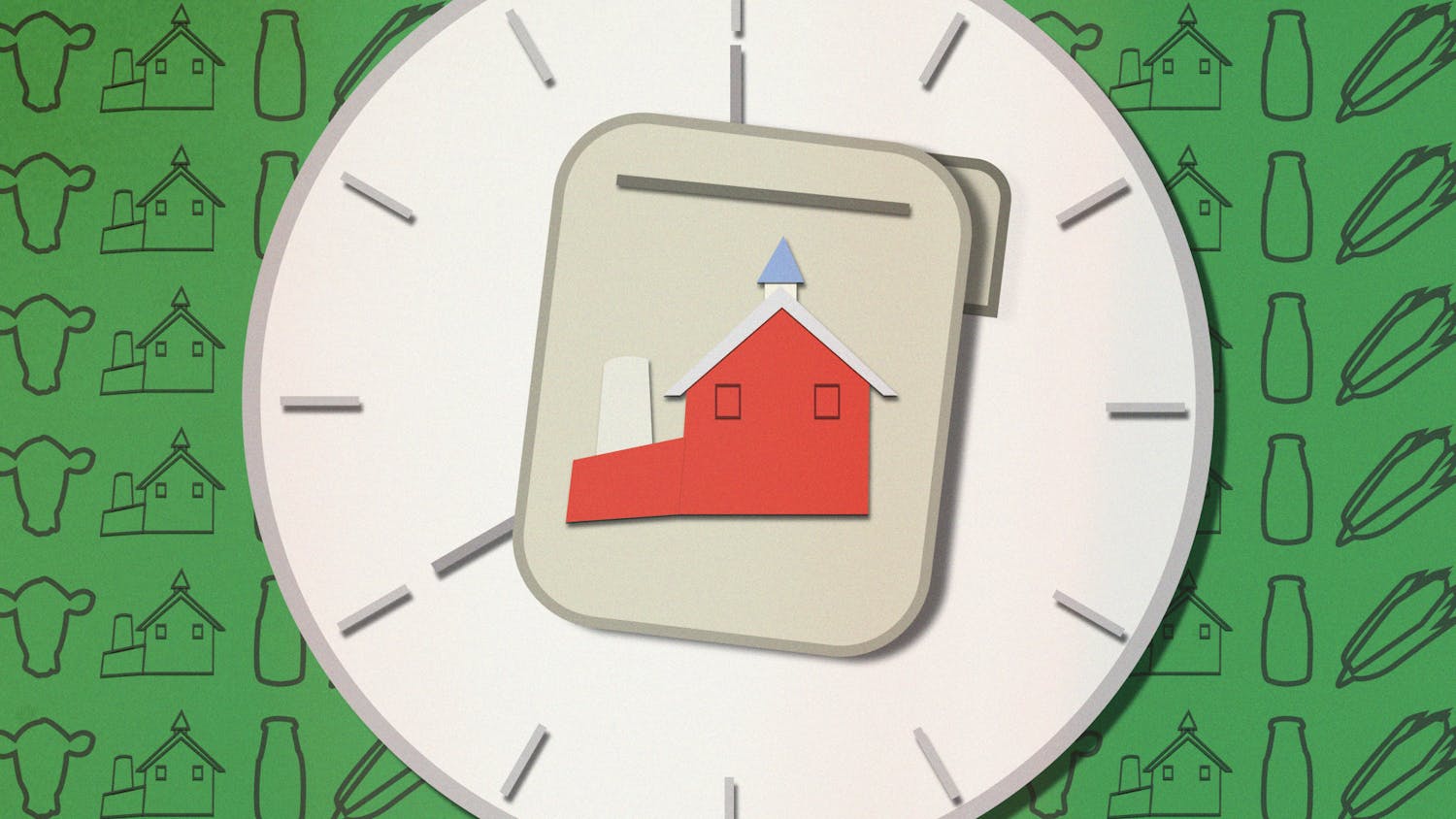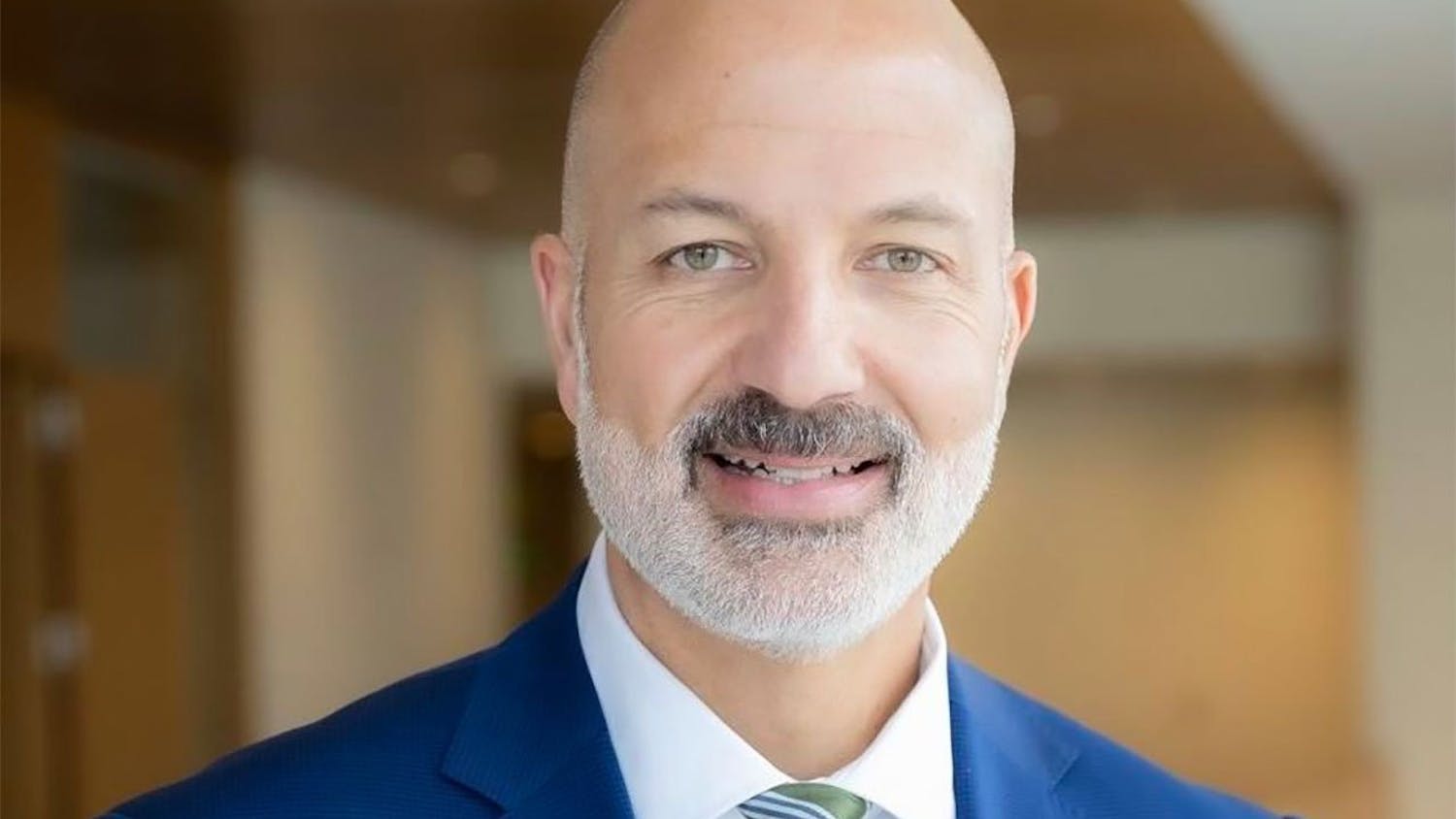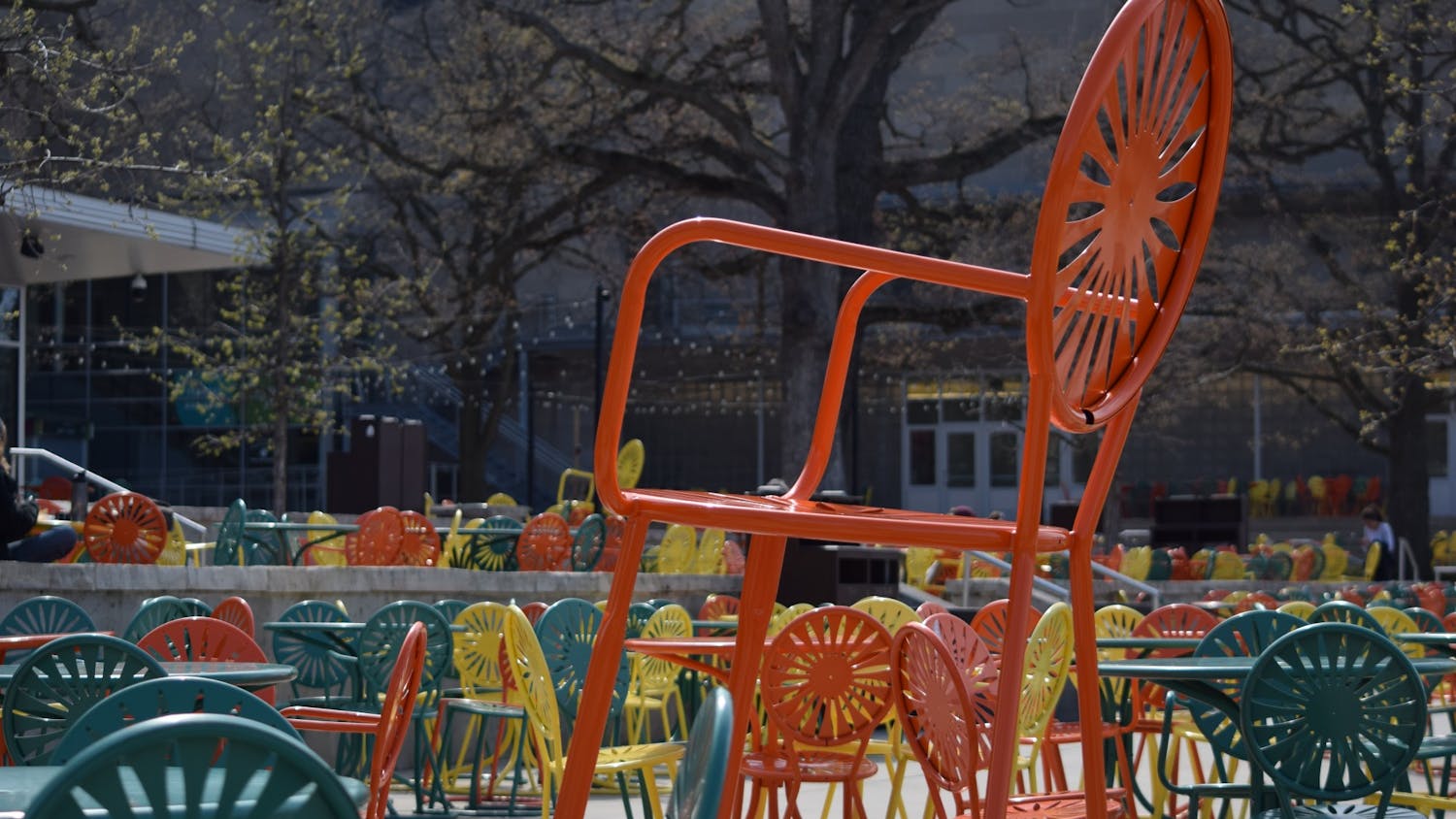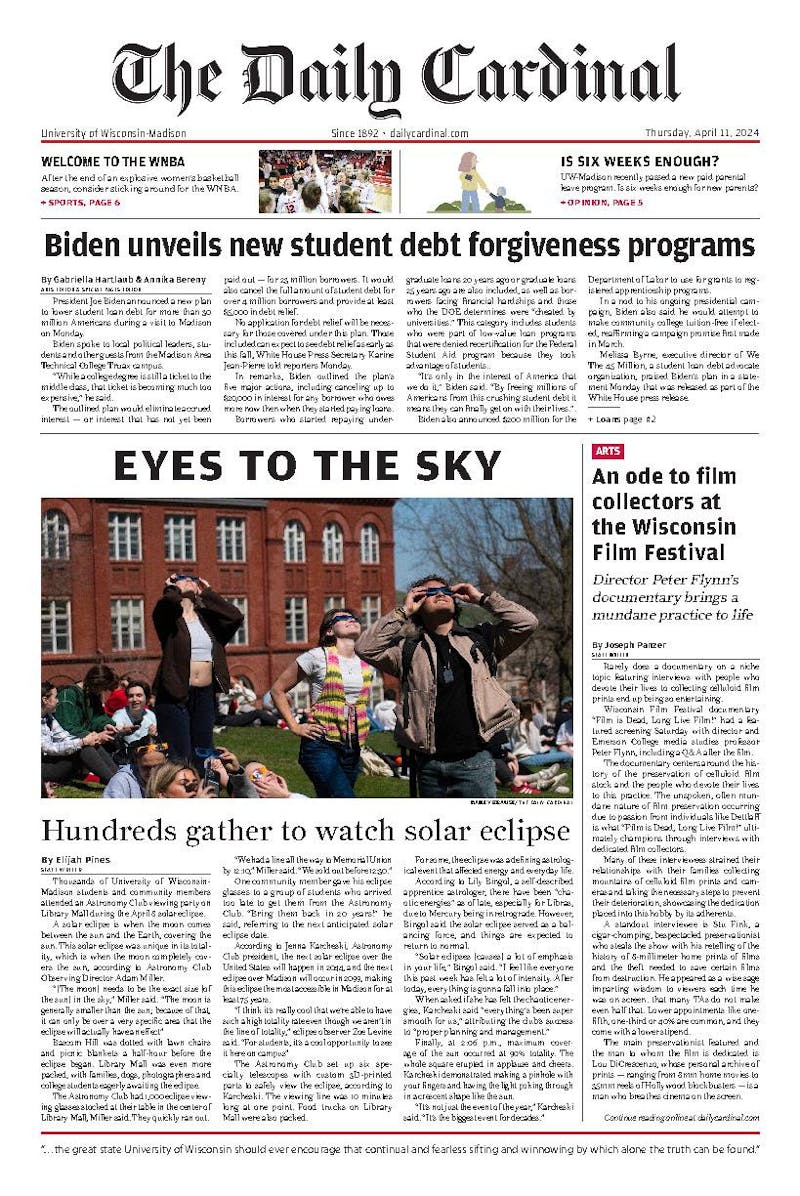
Luke Loken, a doctoral student with UW-Madison's Center for Limnology, has found a way to convert his passion for being out on the water into an opportunity to understand the hidden chemistry that lies beneath the surface of lakes and rivers.
Loken, along with other faculty and grad students, uses a newly developed technology called FLAMe, acronym for “Fast Limnological Automated Measurements,” to gather data while continuously moving through different areas of lakes or rivers.
This mobile sensor system pumps water from underneath a boat across a variety of different sensors and then spits the water back into the lake.
Loken and other limnologists rely on these sensors to observe separate areas of the lake and contrast the interactions that could affect the water’s chemistry.
“Just like a thermometer is a sensor that detects temperature, we have sensors that detect what the pH of the water is, how much dissolved oxygen there is, how much nitrate is in the water, or other elements like carbon dioxide or methane,” Loken said.
The data collected from these sensors helps scientists understand the spatial patterns of the water chemistry in certain aquatic ecosystems.
Loken uses his chemistry background along with his curiosity about the operations of aquatic ecosystems, like Lake Mendota, to investigate the variability of these systems throughout time.
“We have this method figured out about understanding just how variable these systems are,” Loken said. “And by knowing how much has changed through these continuums, we are opening the door to looking into more than just a few places to fully understand how an aquatic system operates.”
Loken emphasized the relatability of limnology, especially with being a research university located on a large lake. Most people have a constant interaction with the lake and are interested how it changes along the shoreline.
“You can imagine a fisherman or someone enjoying the beach has action with the water, and they have an investment in it,” Loken said, “The people care if it’s clean and if their children are going to enjoy it.”
This research promotes a dialogue among scientists, lake managers and policy makers to seek possible ways to improve water quality in rivers or lakes across the country.
“The more we understand how these ecosystems work, the more we might be able to suggest improvement actions or work with the DNR to improve water quality,” Loken said.

